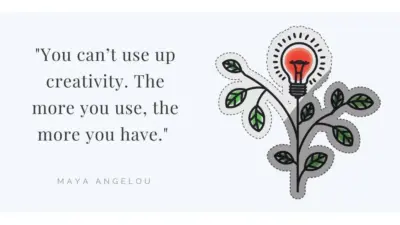Have you ever settled down with a book, excited to dive into its pages, only to find yourself struggling to keep your eyes open a few paragraphs in? You’re not alone. Many of us find that reading, especially in cozy settings, can quickly lead us to the brink of sleep. This phenomenon raises an interesting question: why does reading make us sleepy?
In this Blog post, we’ll explore the various factors that contribute to the sleepiness many of us experience while reading. From the biological mechanisms at play to the psychological effects of reading material, we’ll dive deep into what makes our eyelids heavy when we hit the books.
Why Does Reading Make us Sleepy?
Understanding Sleepiness
Sleepiness, or the desire to sleep, is a physiological state governed by a variety of internal and external factors. It involves complex interactions between biological, environmental, and psychological elements that influence our overall alertness and performance. At its core, sleepiness can be attributed to the brain’s response to certain cues and activities, with reading acting as a unique trigger for many.
Biological Basis of Sleepiness
- Melatonin Production: This natural hormone plays a crucial role in regulating sleep-wake cycles. It is influenced by light exposure; hence, activities like reading in dim light can signal the brain to increase melatonin production, leading to sleepiness.
- Circadian Rhythms: Our body operates on an internal clock that dictates periods of wakefulness and sleepiness throughout the day. This rhythm can influence how alert we feel during different activities, including reading.
Neurological Response to Reading
- Cognitive Load: Reading places a demand on our cognitive resources, especially if the content is complex or requires deep comprehension. This mental effort can lead to cognitive fatigue, a state where continued focus becomes challenging, often manifesting as sleepiness.
- Relaxation Response: For many, reading is a relaxation activity, engaged in to wind down from the day’s stressors. This relaxation response can lower heart rate and reduce stress, physiologically preparing the body for sleep.
Environmental Influences
- Lighting Conditions: The type of lighting under which one reads can greatly affect sleepiness. Dim or warm lighting, often used during nighttime reading sessions, is particularly conducive to sleep, as it does not inhibit melatonin production.
- Comfortable Settings: Environments that are particularly comfortable and warm can also promote sleepiness. Many people read in settings optimized for relaxation (like in a soft armchair or in bed), which can make the transition to sleep seem natural and almost seamless.

Factors Contributing to Sleepiness While Reading
Reading can be a soothing activity, but it can also inadvertently lead to sleepiness due to several interacting factors. Understanding these factors can help readers manage or mitigate the sleepy feelings that often accompany reading.
Physical Factors
- Eye Strain: Reading for extended periods, especially from digital screens or poorly printed materials, can cause significant eye strain. This physical fatigue can contribute to overall feelings of tiredness.
- Posture: Many people read in positions that are conducive to relaxation and sleep, such as lying down or reclining in a comfortable chair. These postures can decrease overall alertness and encourage drowsiness.
- Environmental Comfort: The environment where one reads—be it a cozy, warm room or a comfortable bed—can greatly enhance the likelihood of falling asleep. The body associates these comfortable settings with relaxation and sleep.
Mental Factors
- Cognitive Effort: Engaging with complex or challenging material requires significant mental energy, which can be exhausting. As the brain works harder to process and understand the information, mental fatigue sets in, leading to sleepiness.
- Monotony: Conversely, reading material that is not stimulating or is monotonous can also cause the mind to disengage, triggering a sleep response as a result of reduced mental stimulation.
Emotional Factors
- Emotional Discharge: Reading can be an emotional outlet, helping to process feelings of stress or anxiety. As emotional tension is released, the body may respond by reducing alertness levels, paving the way for sleep.
- Calmness and Relaxation: Literature often serves as a form of escapism that calms the mind. This psychological soothing is akin to the relaxation one feels before falling asleep, making the transition to sleep easier during or after reading.
Role of Circadian Rhythms
Circadian rhythms are internal biological clocks that regulate various physiological processes, including the sleep-wake cycle, in nearly all organisms. Understanding how these rhythms influence our reading habits provides insight into why reading at certain times can make us particularly sleepy.
Understanding Circadian Rhythms
- Biological Timing: Our circadian rhythms help dictate when we feel alert and when we feel sleepy, typically promoting wakefulness during daylight hours and sleepiness during the night. These rhythms are influenced by external light cues but are also driven by an internal timekeeping system.
- Impact on Alertness: Depending on the time of day, our alertness levels can vary significantly. For instance, most people experience a natural dip in alertness in the mid-afternoon, which coincides with a common time to engage in leisure reading.
Reading and Circadian Rhythms
- Optimal Reading Times: The body’s peak alertness times usually occur in the morning and late afternoon. Reading during these times might result in better engagement and less sleepiness. Conversely, reading during the body’s natural downtime—such as late at night—can enhance feelings of drowsiness.
- Light Exposure: Reading with artificial lighting at night can disrupt the natural production of melatonin, the hormone responsible for sleepiness. However, this can also signal the brain to delay sleep onset, confusing the body’s internal clock if one reads too close to bedtime.
Adjusting Reading Habits
- Scheduling Reading Sessions: By planning reading times in alignment with one’s circadian rhythm, readers can maximize alertness and minimize unwanted sleepiness. Understanding one’s own sleep-wake pattern can help in choosing the best times for reading.
- Light Management: Using appropriate lighting while reading can help manage the body’s circadian responses. For night-time reading, using a light that mimics daylight can reduce melatonin disruption, helping maintain alertness during the reading session.

Tips to Avoid Sleepiness While Reading
| Tip | Description |
|---|---|
| Change Your Posture | Avoid reading in positions that are too comfortable, like lying down. Try sitting upright or standing to maintain alertness. |
| Read Aloud | Reading aloud can engage more of your senses and keep your mind active, reducing the likelihood of falling asleep. |
| Take Breaks | Periodic breaks during long reading sessions can help refresh your mind and body. Try a short walk or some light stretching every 30-45 minutes. |
| Adjust Lighting | Ensure your reading area is well-lit. Bright, white light can help mimic daylight and reduce the production of melatonin, which makes you sleepy. |
| Engage with the Content | Choose reading material that is engaging or varies in complexity. Switching between different types of content can keep your brain active and alert. |
| Manage Reading Time | Align your reading time with when you are most alert, typically during morning or early evening, according to your circadian rhythm. |
| Stay Hydrated | Dehydration can cause fatigue. Keep a glass of water nearby and sip regularly while reading. |
| Use Active Reading Techniques | Employ techniques like note-taking or highlighting, which can help you interact with the text actively and keep your mind engaged. |
Also Read: Effects of Reading Novels and Books on Critical Thinking




